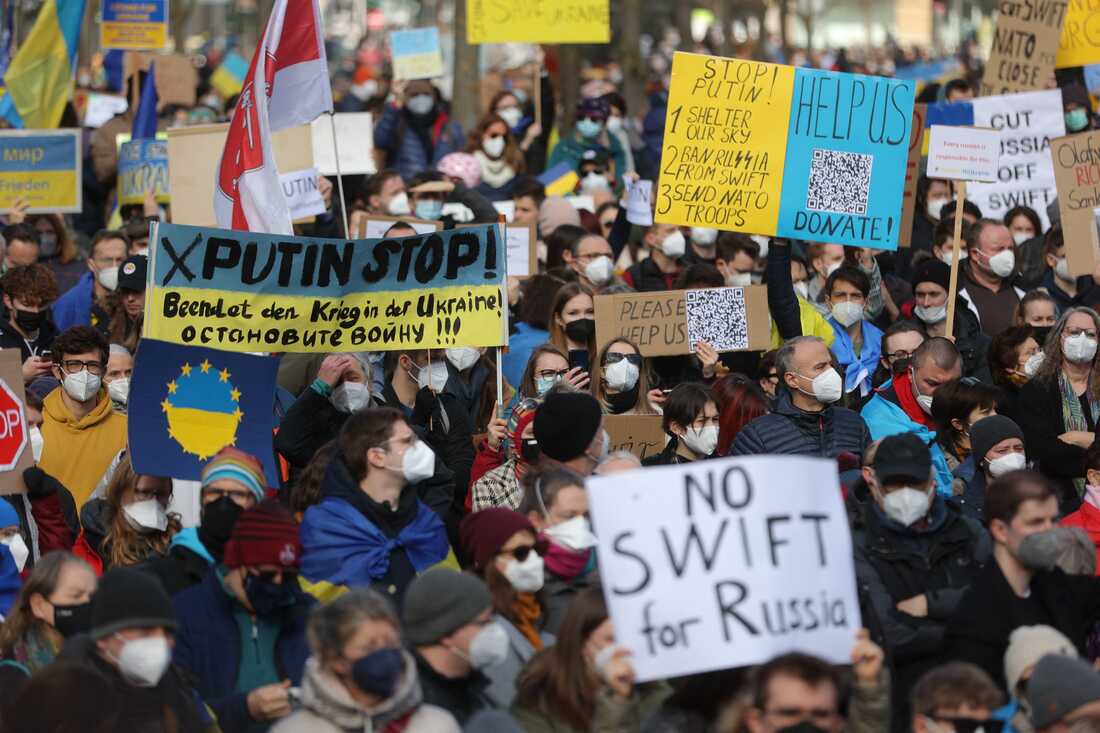
Vladimir Putin, President of the Russian Federation, has been in the spotlight for the unparalleled scale of his attacks on Ukraine that have sent shockwaves across Europe and the rest of the world. With the consequent spotlight on his military actions, his recent actions to suppress dissent in the wake of the attacks have flown under the radar. While many of Putin’s recent transgressions can be classified as antidemocratic, I will focus on his attempts to suppress dissent for this blog-post.
Mere days after launching the attacks on Ukraine, Putin restricted access to Facebook in Russia. This measure is a tool for curbing freedom of expression, as it will now be harder for Russian citizens to organise action and express public dissent. Many Russians took to Facebook to object to the Russian invasion, and expressed sympathies for Ukrainians. An influential Russian human rights activist, Lev Ponomavyov created an online petition “demanding that Kremlin halt the invasion.” It gained over 150,000 signatures in just a few hours.
The Russian government outwardly blamed Facebook’s alleged censorship of four Russian media outlets, RIA Novosti, Zvezda TV, Lenta.ru and gazeta.ru, for the ban. According to the Russian Government, Facebook violated Russia’s Federal Law No. 272-FZ. Federal Law No. 272-FZ, also referred to as the Dima Yakolev law, was designed to safeguard Russian interests and human rights against American entities. In this context, Facebook was likely designated as an American perpetrator of aggression due to the censorship of media outlets.
However, Meta (Facebook’s parent company) denies this allegation, and says the ban is a farce to limit freedom of expression. Nick Clegg, the Meta Global Affairs President says that the ban is because Meta refused to stop fact-checking and labelling the content posted by those four media outlets. In the age of alternative facts meted by politicians, fact-checking has become a part of mainstream politics in democracies [1]. The absence of fact-checking could lead to a dangerous barrage of fake news and state-sponsored propaganda. Incidentally, soon after restricting access to Facebook, Putin restricted access to Twitter too.
The right to “alternative sources of information” and “freedom of expression” are among the eight guarantees that foster the conditions of democracy. Restricting access to social media poses a threat to both of those guarantees.[2] It indicates a bleak departure from the most fundamental characteristics of democracy.
Social media offers endless opportunities for “bottoms-organisation and mobilisation.”[3] Putin’s tactics to manipulate Social Media for his own end undermines citizens’ to democratic right to access information and express dissent. Putin’s own weaponisation of social media as a tool to interfere in the American elections is a testament to the power of social media in the 21st century.
Moreover, Roskomnadzor, the media and communications agency of the government ordered all Russian news publishers to only report information from sources sanctioned by the government. The government has coerced domestic media into expressing support for the invasion. This will further restrict Russian citizens’ access to unbiased and factual news.
Putin’s attempts to stifle dissent by exercising control over information access aren’t new. He has retained control over the most prominent Russian news outlets for very long. But the increase in control signals an imminent departure from the “minimalist control” over media he previously exercised. In the minimalist system, he controlled only over the commanding heights, leaving “room for information to circulate at lower altitudes” [4]. Now, he is trying “ratchet up control over media,” as Scott Gehlbach, Political Science Professor at the University of Chicago, a had predicted. These techniques to control media use information “in weaponized terms, as a tool to confuse, blackmail, demoralize, subvert and paralyze.”[3]
Despite his attempts to exercise control over information, Putin hasn’t been able to evade accountability. Many Russians have taken to the streets in protest against the war. Most demonstrators were detained by the Russian Police, over 6000 protestors have already been detained. The price for dissent is high in Russia, but the protesters were willing to bear the cost. These protestors have risked treason charges and imprisonment to show solidarity with Ukraine. Despite Putin’s attempts to limit access to media, Russian citizens have found their way to factual information about the invasion. As Gehlbach correctly asserted, “Russians aren’t fools.”[4]
[1]Barrera et al., “Facts, Alternative Facts, and Fact-Checking in Times of Post-Truth Politics,” 2020 Journal of Public Economics [2] Robert Dahl, Polyarchy: Participation and Opposition, 1971, chapter 1 (Canvas) [3]Ginsburg, Tom, and Aziz Z. Huq. How to Save a Constitutional Democracy. Chicago, Illinois: The University of Chicago Press, 2020 [4]Ibid, Ginsburg [5]Scott Gehlbach, “Reflections on Putin and the Media,” Post-Soviet Affairs 2010 [6]ibid, Gehlbach
0 Comments